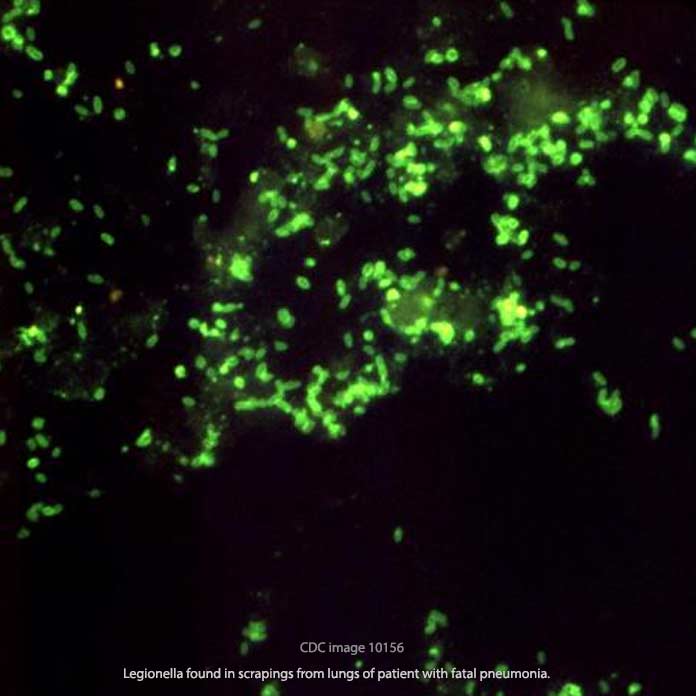Officials at Lockheed Martin’s facility in Marietta, Georgia have officially announced that 4 of their employees have been diagnosed with Legionnaires’ disease over the course of the last twelve months.

This story initially broke on August 2nd, when The Atlanta Journal-Constitution reported that two Lockheed Martin Aeronautics plant workers in Cobb County had contracted Legionnaires’ disease, a severe form of pneumonia that poses particular threats to those who are older than 50, smokers, or have underlying medical conditions such as respiratory illness. (1) On July 28th, an internal company memo alerted plant employees about the two cases, but stated that initial testing of the facility for Legionella pneumonia bacteria suggested “There is no confirmation that these employees contracted this disease at Aeronautics’ Marietta site … In fact, based on information gathered thus far, there does not appear to be a high risk of Legionnaire’s disease in our workplace.” (2).
Now, however, sources report that testing of the water at the Marietta has been intensified following confirmation that at least four employees have been sickened with Legionnaires’ disease. According to Rob Fuller, Communications Senior Manager at Lockheed Martin,
“In the past twelve months, there have been four Lockheed Martin employees with confirmed Legionnaires’ disease. There is no confirmation the employees contracted the disease at their workplace in Marietta. However, as a precautionary measure, we have increased testing of our water to ensure it is safe and implemented the appropriate protocols in our facilities in accordance with public health-recommended guidelines. We continue to work closely with the Georgia Public Health Service and the Cobb-Douglas County Health Dept. to monitor our facilities, and ensure a safe and healthy environment for our employees.” (3)
These four new cases are not apparently the first instances where a Marietta facility worker has been diagnosed with Legionnaires’ disease. In an interview with the Atlanta Journal-Constitution, a 34-year-old former operational engineer at the site has explained how he contracted the disease in October 2014. While hospitalized, this employee’s doctors
“… were fixated on finding out where he could have been exposed to the Legionella bacteria. According to the report submitted to both the Cobb County Public Health and the Centers for Disease Control and Prevention, [the employee] had not done anything outside his usual routine in the weeks leading up to his diagnosis. He slept at home, and dropped his young daughter off at daycare on his way to work, like he did every day. The only change was his work training, in Tunnel 3 under the B-1 building (the same building the two most recent cases worked in).” (2)
OSHA’s Stance on Legionnaires’ Disease in the Workplace
The Occupational Safety & Health Administration pulls no punches when it comes to educating workers, employers, and the public regarding the potential threat of Legionnaires’ disease in the workplace. (4) Chapter 3: Section 7 of the OSHA Technical Manual outlines protocols and best practices for disease recognition, source identification, investigation, and controls which ought to be followed by employers in order to protect their personnel from what can be a potentially fatal disease.
When people contract Legionnaires’ disease in the workplace, their diagnoses need to be reported to their local health department – two or more cases in the same place over the same time period is generally considered to be an outbreak, and thus must be formally investigated.
Sources:
- Thompson, Laura. “Two Marietta plant workers diagnosed with Legionnaires’ Disease.” The Atlanta Journal-Constitution. Web. 2 Aug. 2016.
- Thompson, Laura. “Former Lockheed worker shares story after cobb Legionnaires’ outbreak.” The Atlanta Journal-Constitution. Web. 9 Aug. 2016.
- King, Michael. “Several cases of Legionnaires’ disease reported at Lockheed Martin plant.” WXIA / 11Alive.com. Web. 12 Sept. 2016.
- “Healthcare Wide Hazards: Legionnaires’ Disease.” Occupational Safety & Health Administration. Web.